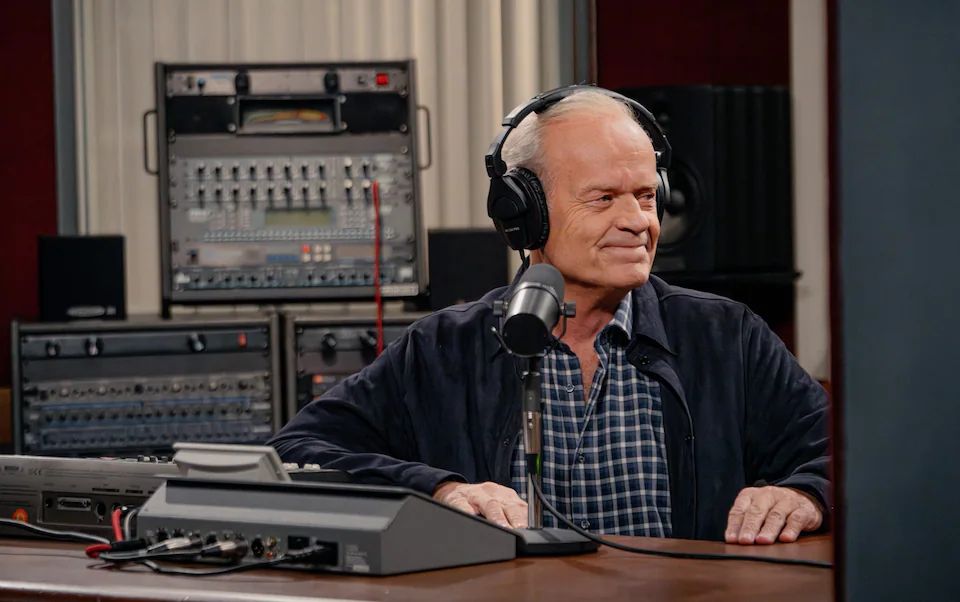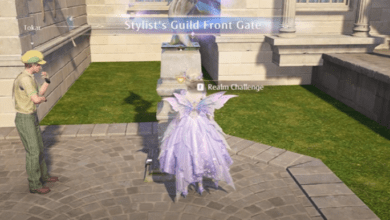Frasier Season 2 Review: A Revival That Struggles to Recapture Its Former Glory
In a world oversaturated with reboots and revivals, Frasier seemed like a breath of fresh air when it returned for its first season last year. The beloved psychiatrist, Dr. Frasier Crane, reprised by the inimitable Kelsey Grammer, was back on our screens, this time with a new setting and a new supporting cast. Season one successfully balanced nostalgia with fresh storytelling, keeping fans of the original series hooked. However, as we delve into season two, it seems that the revival’s charms are starting to wear thin.

A Glimpse of the Past with a Twist
In its original run, Frasier was a masterclass in witty dialogue, farcical situations, and complex character relationships. The show’s clever writing, combined with its intellectual humor, set it apart from other sitcoms of its time. Now, with the revival, the premise has evolved. Instead of navigating life with his father, Martin Crane, Frasier is now the elder statesman, sharing his Boston apartment with his son, Freddy, a Harvard dropout turned firefighter. This reversal of roles is one of the more intriguing aspects of the new series, offering potential for deeper exploration of familial relationships.
However, the second season doesn’t quite capitalize on that potential. The plots remain engaging, and the characters are solid, especially with Freddy’s development as a character. But there’s a crucial ingredient missing the sharpness and laugh-out-loud humor that made the original series so memorable.
If It Ain’t Broke, Don’t Fix It Or Should You?
One of the hallmarks of any successful sitcom is its reliability. Viewers often tune in for the comfort of familiar faces, situations, and comedic beats. Season two of Frasier leans heavily into this principle. The first five episodes, which have been made available for review, stick closely to the formula established in season one. Frasier sets out to achieve a goal often related to his strained relationship with Freddy and his stubbornness or overthinking leads to humorous, if predictable, complications.
Yet, while these plot structures work in theory, the execution leaves something to be desired. The jokes don’t always land with the same punch as they once did. In particular, episode three falls flat with an uninspired subplot involving Frasier, Freddy, and Alan (Frasier’s colleague at Harvard) trying to use Eve’s baby to pick up women. What could have been a clever commentary on aging and relationships instead feels tired and forced.
Comedy That Feels More Lukewarm Than Lively
One of the biggest criticisms of the new season is its uneven humor. Comedy is subjective, of course, but it’s hard to ignore the significant dip in the quality of the jokes compared to both the first season of the revival and the original run of Frasier. For a sitcom that has always prided itself on sharp, sophisticated humor, this is a serious misstep.
For instance, episode five introduces Bebe Glazer (Frasier’s notorious agent) and her daughter Phoebe (played by Rachel Bloom). On paper, this should be a comedic goldmine. Frasier is grappling with his strained relationship with Freddy, and here comes a mother-daughter duo that mirrors Frasier’s own intellectual pretensions. The setup is perfect, but the payoff is lackluster. The jokes feel forced, and the writing doesn’t quite capture the cleverness that defined the show’s early years.
The same can be said of Roz’s return in episode three. Roz Doyle, played by Peri Gilpin, was a fan favorite in the original series, known for her quick wit and sharp tongue. But her appearance in season two feels more like a plot device than a fully realized character. She’s there to facilitate a subplot about Eve needing a night off from her baby, and while it’s nice to see familiar faces, the writing doesn’t give Roz the depth or the humor she deserves.
Character Development: A Mixed Bag
While the humor may be inconsistent, the character work in season two remains solid. Freddy, in particular, has grown into a more well-rounded character. In the first season, he often felt like a one-note representation of blue-collar values in contrast to Frasier’s intellectualism. But in season two, Freddy is given more room to breathe as a character. His relationship with Frasier is complex, filled with both love and frustration, and it’s one of the more emotionally resonant aspects of the show.
However, this development is often undermined by the show’s weaker moments. When the joke writing falters, so too does the emotional depth. The father-son dynamic, which should be at the heart of the revival, sometimes feels simplified or glossed over to serve the needs of a particular plotline.
Nostalgia vs. Innovation: Walking a Fine Line
One of the challenges any revival faces is balancing nostalgia with the need to innovate. Frasier season one struck this balance fairly well, introducing new characters while still paying homage to the original series. Season two, however, leans a bit too heavily on nostalgia without bringing enough new ideas to the table.
The supporting cast including Freddy, Alan, and Eve are all well-established at this point, and there’s little attempt to further develop their relationships with Frasier in meaningful ways. It’s a case of “if it ain’t broke, don’t fix it,” but the show would benefit from taking a few more risks.
While cameos from original cast members like Roz and Bebe are fun, they can only carry the show so far. The revival would do well to move beyond these guest appearances and focus more on the new characters it has introduced. Otherwise, the show risks becoming too reliant on its past.
A Revival with Potential, But Missing the Mark
To be clear, season two of Frasier is not without its charms. Kelsey Grammer still delivers a stellar performance as Frasier Crane, and the father-son dynamic between him and Freddy is compelling when the writing allows it to be. There are moments of genuine emotional depth, and the show still offers occasional flashes of the wit and intelligence that made the original series such a classic.
But for every well-crafted scene or clever joke, there’s an equal number of moments that fall flat. The show’s comedic timing feels off, and the writing lacks the sharpness that made Frasier a standout sitcom in the first place. As much as fans may want to love the revival, it’s hard to ignore the fact that something vital has been lost in translation.
Conclusion: Can Frasier Reclaim Its Glory?
Frasier season two is a mixed bag. It offers enough familiar beats to keep long-time fans interested, but it doesn’t quite reach the heights of the original series. The characters are still engaging, the plots are serviceable, but the humor the lifeblood of any sitcom is inconsistent at best.
As we look ahead to the rest of the season, there’s still hope that the show can find its footing. But as it stands now, Frasier season two feels like a revival that’s struggling to recapture the magic of its predecessor. The potential is there, but the show needs to take a few more risks if it wants to truly stand out in the crowded landscape of TV revivals.
In the end, if the jokes don’t land, the rest doesn’t matter. Comedy is what made Frasier great, and it’s what will determine whether this revival has staying power or if it’s destined to fade into obscurity.





